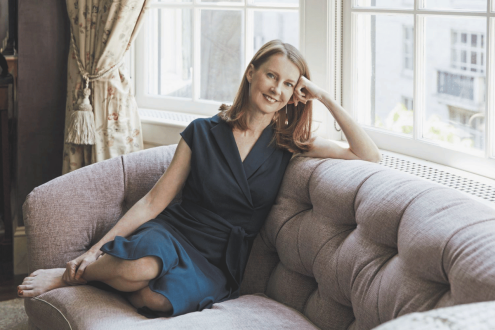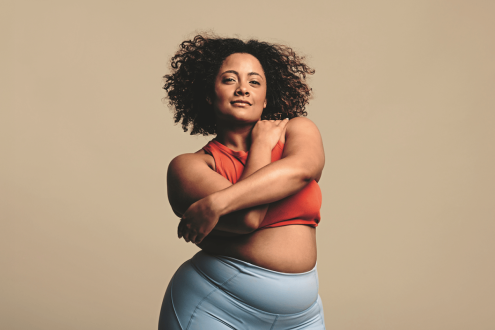How to age positively
With stronger conviction and greater connections, it’s high time we embraced growing older, writes Yasmina Floyer
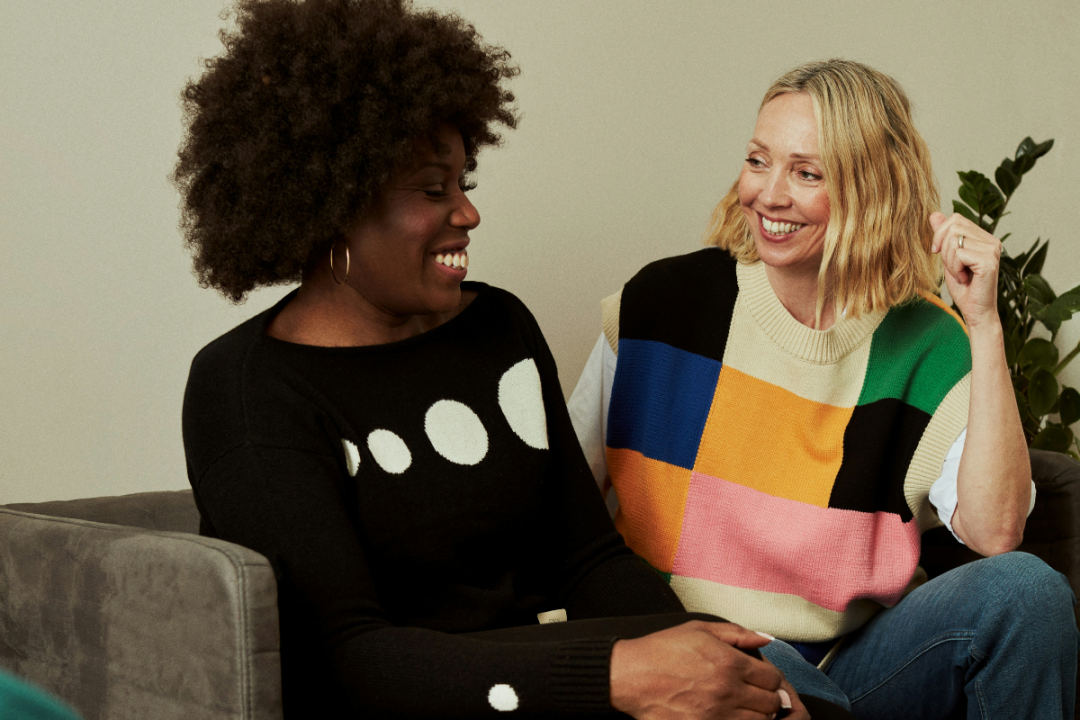
Whenever I’ve been told, ‘You look great for your age!’, I’ve always taken it as a compliment – the spirit in which intended. But with my 40th birthday just days away, as with all milestone birthdays, I’ve been plunged into a period of self-reflection.
And, for the first time, I have begun to interrogate this seemingly innocuous phrase. I now realise that what it actually means is that I don’t look my age at all; I look younger. But why is this a compliment?
The concept of ‘ageing gracefully’ was introduced to me in childhood, though I had very little understanding of what ‘graceful ageing’ looked like in practice. What I notice now, however, is that each time the phrase ‘graceful ageing’ is mentioned, it is in relation to a woman (how often have we heard a man described as ageing gracefully?).
The emphasis appears to be on natural beauty – the messaging being that a woman is allowed to age so long as she doesn’t visibly look her age. It is no surprise then that, for the most part, the beauty industry has us worshipping at the altar of youth.
By the time we have transitioned from girlhood to womanhood, popular culture has us fully versed on the war waged against ageing, with brands borrowing from the lexical field of battle to promote their lotions and potions, which claim to ‘fight’, ‘combat’, ‘banish’, and even ‘erase’ visible signs of ageing, to rid ourselves of this enemy that comes to us in the form of wrinkles and fine lines.
Whilst the messaging surrounding ageing continues to be predominantly one of avoiding it, within the beauty industry we are beginning to see a shift towards age positivity.
Editorial director of beauty and wellness online content platform Get The Gloss, Victoria Woodhall, tells me that, ‘As we get older, we want to embody – and share – the wisdom and strength we’ve acquired over the years. And to be taken seriously, we don’t want to look like green teenagers with no life experience – we need to look as though we have lived! If we want to embrace our grey hair and our wrinkles we can. But, likewise, we don’t have to.’
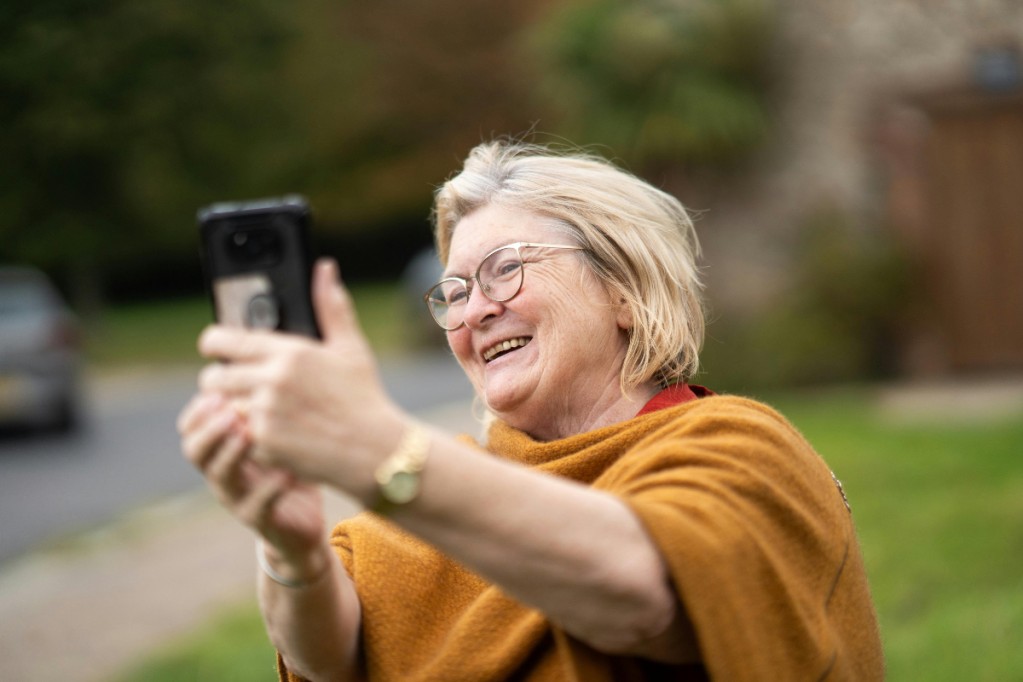
This idea of choosing who we grow into is reflected in the way that the beauty industry has evolved to offer high-tech treatments and skincare to meet our desire to be the best version of ourselves without looking like we are trying to be someone else.
Synonymous with the word ‘hag’ (defined as an ‘ugly, old woman’), the word ‘crone’ has somewhat negative connotations – yet, thanks to a growing popularity in esoteric interests such as tarot and astrology, more and more women are embracing the ‘crone’ persona.
Award-winning poet and author of A Spell In The Wild: A Year (And Six Centuries) Of Magic (John Murray Press, £12.99), Alice Tarbuck, describes how the identity of the crone varies widely across the world, but she appears – an older woman, usually post-menopausal, often associated with winter – across many European and some global majority traditions.
‘As well as being a goddess, sometimes – one thinks of the Celtic Cailleach, goddess of the winter, here – she is an archetypal figure, appearing in myths and fairy tales. However, she is also the third part of the triple goddess figuration, made popular by Robert Graves and widely incorporated into diverse neo-pagan practices – forming a triumvirate with ‘the maiden’ and ‘the mother’. These three figures represent the three phases of all life, although they are most usually associated with female identity.
‘The youngest phase, the maiden, represents the pre-pubescent and early pubescent states, while the mother, the second stage, represents maturation into adulthood and childbearing,’ says Tarbuck. She goes on to tell me that the crone represents older age: ‘Many pagans now find this triumvirate restrictive, especially as these life stages don’t apply to everyone. Currently, the crone is popular amongst those who have not borne children, regardless of age; those who have undergone hysterectomy or mastectomy operations, others who feel drawn to her penetrating wisdom, which sees beyond the things of the world.’
In my 30s, part of me was worried about advancing in age, since that is the very thing that society has conditioned women to fear. Ageing means a shifting identity towards the unknown, towards invisibility, which got me thinking about conversations surrounding what we consider to be age appropriate, and why certain things that are tied into how we express our identity – clothes, pastimes – are perceived to have an expiration date.
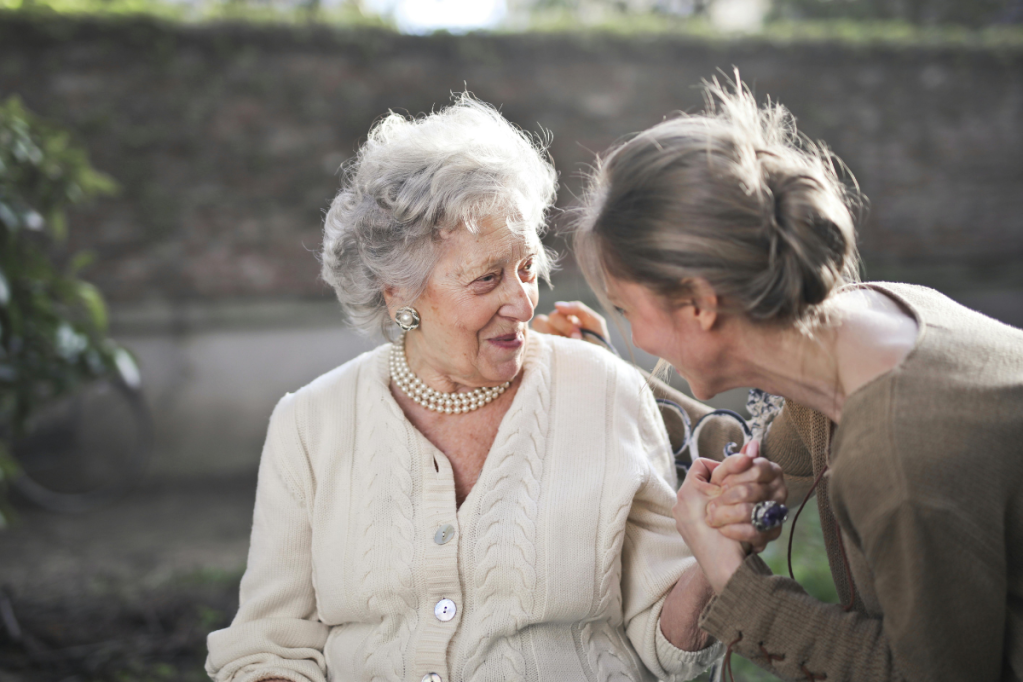
I understand that, for some, thoughts of what is okay to wear or do at a certain age are genuine concerns. Leaning into the wisdom and self-assurance of the crone, I am encouraged to not worry about this. Being alive for four decades is practically impossible to do without experiencing some share of pain, the sort that makes you sit down and ask yourself what truly matters to you in this life. Experience helps us to recalibrate what we ought to worry about and what not to, and so I don’t think twice about whether I look acceptable in something.
Winter found me at a Prodigy gig in the thick of a mosh pit. Sometimes, I wear band T-shirts. I wear palazzo trousers and long crop tops with a blazer, silk slip dresses, leggings on the school run with a hole at the knee. I wear a coat over my pyjamas on an emergency dash to the coffee shop when I’ve run out. I wear my hair long with the ends dyed green, then cut out the green when I feel like it. I give less thought to what I ought to be wearing and simply allow myself to be the woman I have grown into.
There is no expiration date on how we choose to express ourselves or what we choose to engage in. I don’t need anyone’s permission other than my own, and I certainly don’t worry about whether something is age appropriate – a term I feel only really applies to anyone who isn’t already a grown-up!
Getting older, I’ve found that my friendships have deepened, and as I grow more convicted in what my values are, I have formed new connections with people who are in alignment with them. Victoria Woodhall agrees we should try to surround ourselves with like-minded women who lift us up.
‘And when you look in the mirror,’ she tells me, ‘remember that ageing is a privilege not everyone gets, and be excited for the things you have and that lie ahead. A quick journal at the beginning and the end of every day soon helps you gain perspective, appreciate the now, and plan for a bright future,’ she adds
If it sounds like I’m embracing who I am and solely looking forward to turning 40, this isn’t the case: life is finite, and milestone birthdays provoke reflection and retrospection. Part of that involves me worrying that I am running out of time to do things, or that I have left it too late to start – but this is when I call on the crone energy most.

‘The crone offers us the gift of sight, free from the distractions of the world – she shows us what has come, and what has yet to come.’ Tarbuck goes on to share that the crone is reflective and can contribute to our sense of internal balance – accepting all things, seeing things with the wisdom of our experience.
Additionally, she is an excellent mechanism for letting go – allowing previous tethers and attachments that no longer serve us to simply melt away like snow. ‘If you are someone who struggles with the physical signs of ageing, the crone can be a wonderful guide towards finding what truly matters to you in terms of appearance and presentation – she can be everything from a winter gale to a single snowflake, to a stone on the bare side of a mountain. For me, she offers a balance to narratives of productivity – we don’t need to make things all the time; we have other gifts to offer.’
The crone reminds me that it isn’t too late to begin, that desire doesn’t have an expiration date, that we have accumulated enough data by now to know when something isn’t serving us, that if we are privileged enough to live in relative comfort and safety, and with the immense gift of possessing agency over our choices, that there is no reason not to lean in to who we are.
One day, if I am lucky, I will look in the mirror and see a face which looks vastly different to the one I have now, and she will still be me. Embracing the archetype of the crone has presented me with a positive image of what an ageing woman can look like; not invisible, but strong, wise, herself.
Read more: Redefine what ‘success’ means to you

